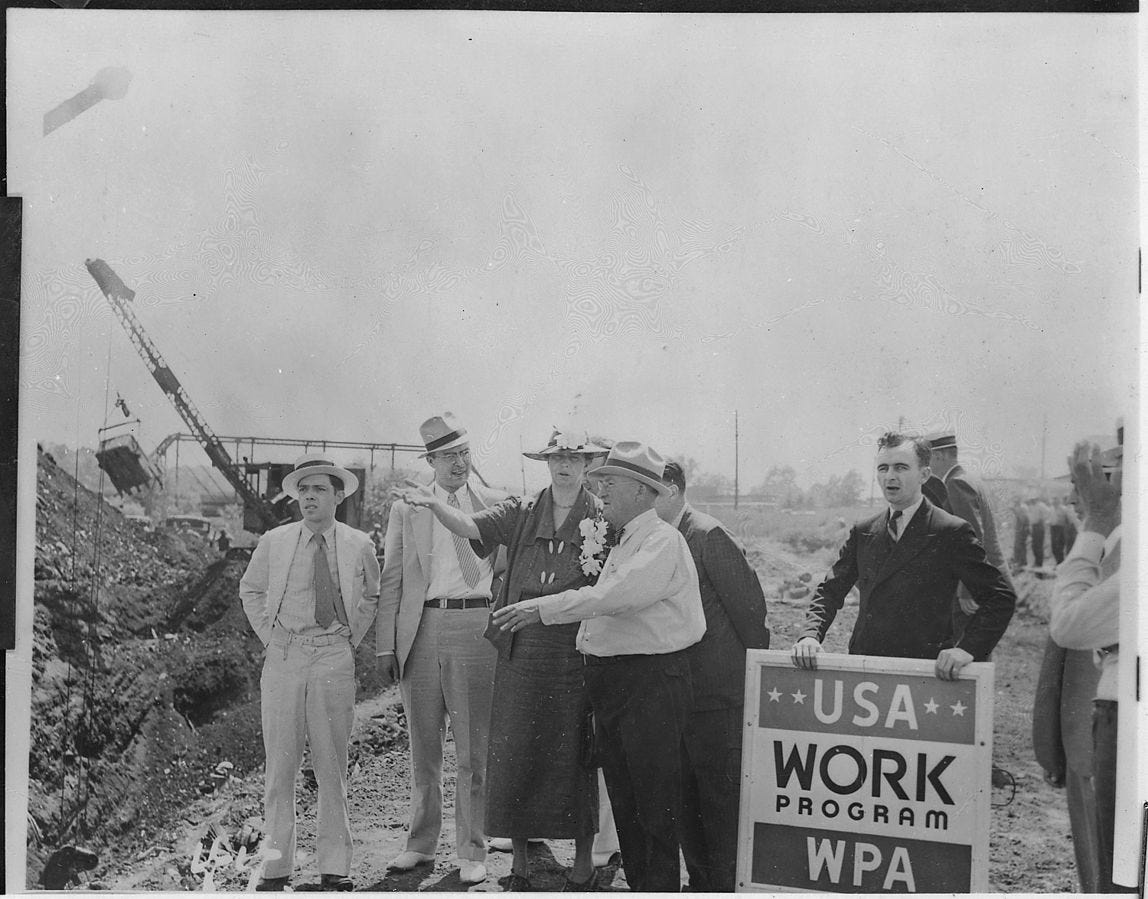The new progressive economics: some constructive criticism
We need a progressive approach to economics that doesn't depend on a deficiency of aggregate demand.
Matt Yglesias has a very interesting series of posts about “neoliberalism” and the American progressives who want to replace it. In the first post, he argues that the neoliberal policy revolution was much less sweeping and extensive than lots of progressives seem to think (he’s right). In the second post, he argues that the biggest problem with our old China trade policy was that it compromised national security (he’s right about that too). I’m looking forward to the next posts in the series.
But while it’s mildly interesting to debate what the word “neoliberalism” should mean, and whether it applies to our past policies, I think it’s more interesting and fruitful to think about what the next paradigm should be. There’s a whole group of progressive intellectuals out there — many of them advising Democratic politicians and presidential administrations — who now believe that they have a pretty solid idea of what our guiding economic philosophy should be. Their ideas are novel and well-developed enough where we can start to evaluate them.
Some of the principal protagonists in this movement include:
The Roosevelt Institute, a progressive think tank focused on issues like macroeconomics, industrial policy, labor, corporate power, race, and climate
The Hewlett Foundation, a very large think tank that has some people working on various progressive ideas and causes, including crafting a successor to “neoliberalism”
Employ America, a small think tank mostly focused on macroeconomic policy
The Washington Center for Equitable Growth, a small empirically focused think tank focused on various progressive policy ideas
There are others, many of them unaffiliated with think tanks. But checking out the work of these four organizations will give you a decent intro to the people creating the new progressive economic paradigm. Just visit their websites and read through their articles, press releases, white papers, blog posts, and so on.
I should note that the people involved here are, largely speaking, my friends. I know many of them, and talk with them semi-regularly, and go to some of their events. I like them personally, and I think that their hearts are in the right place. But that said, I have my share of criticisms of the paradigm that they’re putting out, and I think it helps to write these down.
I’ve been trying to collate my various quibbles into a simple form, and I think I’ve basically hit on what I feel is a central flaw in the new progressive paradigm. I think it’s a program designed for an economy that has a demand deficiency — basically, a depression, or a long period of macroeconomic weakness. In fact, America is now facing something different — a world of supply constraints, in which demand stimulus and job provision programs can easily stoke inflation while also failing to build many of the things progressives want to create. The focus on providing jobs, jobs, jobs — a legacy of the New Deal, but also of the Great Recession of the early 2010s — just isn’t ideal in the current macroeconomic environment.
This a major flaw in the progressives’ thinking, but I think it’s a fixable one. The movement contains within it the seed of another important idea that could address this issue: the idea of state capacity. But anyway, first let’s talk about the problem, and where it comes from, and why it’s a problem.
The “provide jobs” paradigm and the legacy of the New Deal
The American progressive movement got its first big legislative breakthroughs during the Great Depression, as part of Franklin D. Roosevelt’s New Deal. Progressivism didn’t begin with FDR, but it was the Depression that allowed it to win actual victories. when FDR came to power in 1933, unemployment was at 25% — a number that’s almost unimaginable today.

Getting Americans back to work was the overriding national imperative.



